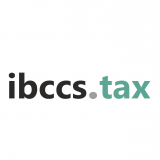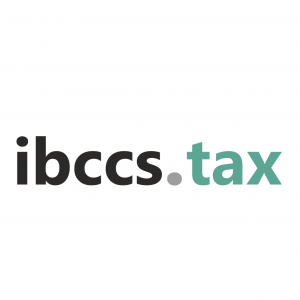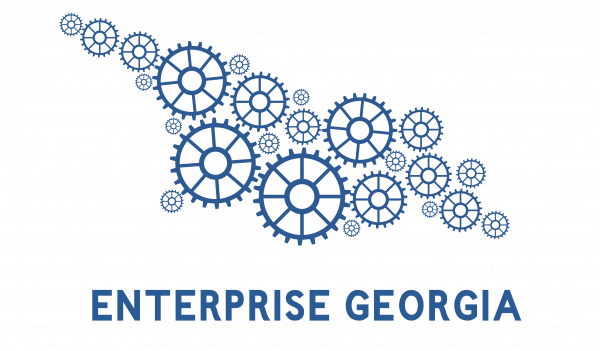Your Financial Manager

Posted:
Jul 07, 2025
About The Service
In today's dynamic business environment, sound financial management is not just an advantage—it's a necessity. "Your Financial Manager" is a meticulously designed service package aimed at empowering businesses, particularly MSMEs, with the tools, knowledge, and strategic insights needed to achieve financial stability and sustainable growth. From establishing fundamental financial practices to identifying crucial funding opportunities, our tiered approach ensures that you receive the precise level of support your business demands.
Choose the package that aligns with your current needs and future aspirations:
Basic Package: Includes services from section 1. Developing Basic Financial Tools and 3. Creating an Accounting Policy.
Standard Package: Includes services from sections 1. Developing Basic Financial Tools, 2. Financial Analysis, and 3. Creating an Accounting Policy.
Premium Package: Includes all four services: 1. Developing Basic Financial Tools, 2. Financial Analysis, 3. Creating an Accounting Policy, and 4. Identifying Possible Sources of Financing for Business.
________
1. Developing Basic Financial Tools
Getting familiar with the Beneficiary MSME: Conduct in-depth interviews with beneficiary MSME (company) representatives to clarify the company’s financial structure (revenue structure, expenses, etc.) and financial management (systems and tools, as well as capacity, including for data collection, reporting, and analytics).
Analyzing the company’s financial statements: Analyze the financial statements, including their dynamics and structure.
Developing basic tools for tracking cash flow: Create tools such as a payment calendar and a budgeting template.
Conducting training: Provide training for company representatives on how to use these financial tools.
Developing measurable targets: Create a list of measurable targets with a methodology for calculation and tracking to monitor the impact of the new tools. Potential indicators include:
Profit growth rate
Decrease of cash gaps
Difference between budget and actual expenditures
Percentage of management reporting using the tool
EXPECTED OUTPUT: Basic financial tools (e.g., payment calendar, budgeting template), training on how to use the financial tools, and a list of measurable targets with a methodology on how to calculate and track them.
2. Financial Analysis
Getting familiar with the Beneficiary MSME: Conduct in-depth interviews with the beneficiary MSME’s representatives (accountants, employees responsible for finance, CEO) to evaluate financial reporting, data, and other related issues.
Analyzing financial documentation: Analyze the company's financial documentation, including accounting statements, management reporting, the structure of production costs, dynamics and structure of capital investments, depreciation, etc.
Conducting financial analysis: Perform financial analysis of the company (horizontal and vertical analysis, key financial ratios, etc.). Additional data and/or interviews with company representatives may be required at this stage.
Developing a dynamic financial model: Create a dynamic financial model with forecasts of the company’s business indicators (sales, costs, working capital, capital expenditures, etc.).
Developing recommendations and action plans: Formulate recommendations to improve the financial efficiency of the business based on the financial analysis (e.g., improving conditions with suppliers, searching for new sales channels) with an action plan for each recommendation.
Developing measurable targets for recommendations: Create a list of measurable targets for recommendations with a methodology for calculation and tracking to monitor the impact of the recommendations and the new financial model. Potential indicators include:
Decrease of cash gaps
Difference between budget and actual expenditures
Percentage of managers reporting being prepared to make decisions (or making decisions) based on financial analysis
Conducting a training session: Hold a session with company representatives to teach them how to update the financial model and financial ratios, and how to use them when making strategic decisions.
EXPECTED OUTPUT: A dynamic financial model that identifies potential cash gaps and financial risks, and helps understand the company's financial situation; a list of recommendations to improve the financial efficiency of the business with respective action plans; and a list of measurable targets with a methodology on how to calculate and track them.
3. Creating an Accounting Policy
Getting familiar with the Beneficiary MSME: Conduct in-depth interviews with beneficiary MSME representatives to understand existing accounting practices, frequent problems and needs, and to identify the required accounting service.
Analysis of accounting and financial documents: Analyze all available accounting and financial documents of the company.
Creating an accounting policy: Develop an accounting policy which could include:
How the business should conduct accounting
How to classify various expenses, etc.
Developing a list of accounting documents: Create a list of the accounting documents the company should have (including all reporting forms and declarations) with a description of key requirements, instructions on how to fill them, and templates for the main ones.
Conducting training: Provide training for the company’s accounting employees/responsible personnel on conducting accounting, using the templates, and following the developed instructions.
EXPECTED OUTPUT: Different options could be provided (depending on the size and needs of the company): An accounting policy; a list of the most important accounting documents for the company (e.g., ledger, invoices, bill of lading, consignment bill, payment slip, cash documents (cashbook); banking documents (payment order and request, letter of credit) including their key characteristics, requirements, instructions on how to fill them, and their templates; and training for staff on using the templates and following the instructions developed for the company.
4. Identifying Possible Sources of Financing for Business
Getting familiar with the Beneficiary MSME: Conduct in-depth interviews with beneficiary MSME representatives for a general assessment of funding needs and purposes, as well as past financing mechanisms, availability of collateral, and willingness of owners to receive co-investment.
Analyzing existing financing options: Analyze existing financing options available to the company (both in terms of instruments - grants, loans, equity etc. – and providers – private, public, international organizations) and select the three most appropriate ones. This includes assisting the beneficiary MSME in putting in requests for terms and rates that banks are willing to offer, as well as conditions applicable to the financing.
Compiling a list of potential sources of financing: Compile a list of potential sources of financing with detailed descriptions of the steps needed to obtain the funding.
Compiling a list of required documents: Compile a list of required documents to obtain the funding with detailed descriptions/instructions for each.
Supporting communication with donors/investors/banks: Provide support in communication with donors/investors/banks to get the funding (when requested).
EXPECTED OUTPUT: A detailed list of the most optimal sources of financing with a description of the steps that need to be taken to receive them; a list of required documents with detailed descriptions/instructions for each; and support in communication with donors/investors/banks to get the funding (when requested).
Choose the package that aligns with your current needs and future aspirations:
Basic Package: Includes services from section 1. Developing Basic Financial Tools and 3. Creating an Accounting Policy.
Standard Package: Includes services from sections 1. Developing Basic Financial Tools, 2. Financial Analysis, and 3. Creating an Accounting Policy.
Premium Package: Includes all four services: 1. Developing Basic Financial Tools, 2. Financial Analysis, 3. Creating an Accounting Policy, and 4. Identifying Possible Sources of Financing for Business.
________
1. Developing Basic Financial Tools
Getting familiar with the Beneficiary MSME: Conduct in-depth interviews with beneficiary MSME (company) representatives to clarify the company’s financial structure (revenue structure, expenses, etc.) and financial management (systems and tools, as well as capacity, including for data collection, reporting, and analytics).
Analyzing the company’s financial statements: Analyze the financial statements, including their dynamics and structure.
Developing basic tools for tracking cash flow: Create tools such as a payment calendar and a budgeting template.
Conducting training: Provide training for company representatives on how to use these financial tools.
Developing measurable targets: Create a list of measurable targets with a methodology for calculation and tracking to monitor the impact of the new tools. Potential indicators include:
Profit growth rate
Decrease of cash gaps
Difference between budget and actual expenditures
Percentage of management reporting using the tool
EXPECTED OUTPUT: Basic financial tools (e.g., payment calendar, budgeting template), training on how to use the financial tools, and a list of measurable targets with a methodology on how to calculate and track them.
2. Financial Analysis
Getting familiar with the Beneficiary MSME: Conduct in-depth interviews with the beneficiary MSME’s representatives (accountants, employees responsible for finance, CEO) to evaluate financial reporting, data, and other related issues.
Analyzing financial documentation: Analyze the company's financial documentation, including accounting statements, management reporting, the structure of production costs, dynamics and structure of capital investments, depreciation, etc.
Conducting financial analysis: Perform financial analysis of the company (horizontal and vertical analysis, key financial ratios, etc.). Additional data and/or interviews with company representatives may be required at this stage.
Developing a dynamic financial model: Create a dynamic financial model with forecasts of the company’s business indicators (sales, costs, working capital, capital expenditures, etc.).
Developing recommendations and action plans: Formulate recommendations to improve the financial efficiency of the business based on the financial analysis (e.g., improving conditions with suppliers, searching for new sales channels) with an action plan for each recommendation.
Developing measurable targets for recommendations: Create a list of measurable targets for recommendations with a methodology for calculation and tracking to monitor the impact of the recommendations and the new financial model. Potential indicators include:
Decrease of cash gaps
Difference between budget and actual expenditures
Percentage of managers reporting being prepared to make decisions (or making decisions) based on financial analysis
Conducting a training session: Hold a session with company representatives to teach them how to update the financial model and financial ratios, and how to use them when making strategic decisions.
EXPECTED OUTPUT: A dynamic financial model that identifies potential cash gaps and financial risks, and helps understand the company's financial situation; a list of recommendations to improve the financial efficiency of the business with respective action plans; and a list of measurable targets with a methodology on how to calculate and track them.
3. Creating an Accounting Policy
Getting familiar with the Beneficiary MSME: Conduct in-depth interviews with beneficiary MSME representatives to understand existing accounting practices, frequent problems and needs, and to identify the required accounting service.
Analysis of accounting and financial documents: Analyze all available accounting and financial documents of the company.
Creating an accounting policy: Develop an accounting policy which could include:
How the business should conduct accounting
How to classify various expenses, etc.
Developing a list of accounting documents: Create a list of the accounting documents the company should have (including all reporting forms and declarations) with a description of key requirements, instructions on how to fill them, and templates for the main ones.
Conducting training: Provide training for the company’s accounting employees/responsible personnel on conducting accounting, using the templates, and following the developed instructions.
EXPECTED OUTPUT: Different options could be provided (depending on the size and needs of the company): An accounting policy; a list of the most important accounting documents for the company (e.g., ledger, invoices, bill of lading, consignment bill, payment slip, cash documents (cashbook); banking documents (payment order and request, letter of credit) including their key characteristics, requirements, instructions on how to fill them, and their templates; and training for staff on using the templates and following the instructions developed for the company.
4. Identifying Possible Sources of Financing for Business
Getting familiar with the Beneficiary MSME: Conduct in-depth interviews with beneficiary MSME representatives for a general assessment of funding needs and purposes, as well as past financing mechanisms, availability of collateral, and willingness of owners to receive co-investment.
Analyzing existing financing options: Analyze existing financing options available to the company (both in terms of instruments - grants, loans, equity etc. – and providers – private, public, international organizations) and select the three most appropriate ones. This includes assisting the beneficiary MSME in putting in requests for terms and rates that banks are willing to offer, as well as conditions applicable to the financing.
Compiling a list of potential sources of financing: Compile a list of potential sources of financing with detailed descriptions of the steps needed to obtain the funding.
Compiling a list of required documents: Compile a list of required documents to obtain the funding with detailed descriptions/instructions for each.
Supporting communication with donors/investors/banks: Provide support in communication with donors/investors/banks to get the funding (when requested).
EXPECTED OUTPUT: A detailed list of the most optimal sources of financing with a description of the steps that need to be taken to receive them; a list of required documents with detailed descriptions/instructions for each; and support in communication with donors/investors/banks to get the funding (when requested).
Categories
Administrative Services
Expertise
ACCA
F3
F7
AML Legislation
GAAP
Location
Online
Basic
Standard
Premium
₾2,800.00
Includes services:
- Developing Basic Financial Tools
- Creating an Accounting Policy.
- Developing Basic Financial Tools
- Creating an Accounting Policy.
Completion
:
14 Day
Total Revision :
0
₾5,700.00
Includes services:
1. Developing Basic Financial Tools
2. Financial Analysis
3. Creating an Accounting Policy.
1. Developing Basic Financial Tools
2. Financial Analysis
3. Creating an Accounting Policy.
Completion
:
21 Day
Total Revision :
0
₾7,700.00
Includes all services:
1. Developing Basic Financial Tools
2. Financial Analysis
3. Creating an Accounting Policy
4. Identifying Possible Sources of Financing for Business.
1. Developing Basic Financial Tools
2. Financial Analysis
3. Creating an Accounting Policy
4. Identifying Possible Sources of Financing for Business.
Completion
:
28 Day
Total Revision :
0


